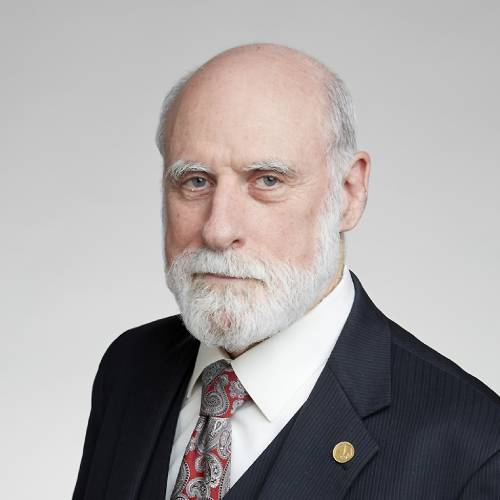
by BGF | Apr 24, 2019 | Global Enlightenment Leaders
Vinton G. Cerf has served as vice president and chief Internet evangelist for Google since October 2005. In this role, he is responsible for identifying new enabling technologies to support the development of advanced, Internet-based products and services from Google. He is also an active public face for Google in the Internet world.
Cerf is the former senior vice president of Technology Strategy for MCI. In this role, Cerf was responsible for helping to guide corporate strategy development from the technical perspective. Previously, Cerf served as MCI’s senior vice president of Architecture and Technology, leading a team of architects and engineers to design advanced networking frameworks including Internet-based solutions for delivering a combination of data, information, voice and video services for business and consumer use.
Widely known as one of the “Fathers of the Internet,” Cerf is the co-designer of the TCP/IP protocols and the architecture of the Internet. In December 1997, President Clinton presented the U.S. National Medal of Technology to Cerf and his colleague, Robert E. Kahn, for founding and developing the Internet. Kahn and Cerf were named the recipients of the ACM Alan M. Turing award in 2004 for their work on the Internet protocols. The Turing award is sometimes called the “Nobel Prize of Computer Science.” In November 2005, President George Bush awarded Cerf and Kahn the Presidential Medal of Freedom for their work. The medal is the highest civilian award given by the United States to its citizens. In April 2008, Cerf and Kahn received the prestigious Japan Prize.
Prior to rejoining MCI in 1994, Cerf was vice president of the Corporation for National Research Initiatives (CNRI). As vice president of MCI Digital Information Services from 1982-1986, he led the engineering of MCI Mail, the first commercial email service to be connected to the Internet. During his tenure from 1976-1982 with the U.S. Department of Defense’s Advanced Research Projects Agency (DARPA), Cerf played a key role leading the development of Internet and Internet-related packet data and security technologies.
Vint Cerf served as chairman of the board of the Internet Corporation for Assigned Names and Numbers (ICANN) from 2000-2007. Cerf also served as founding president of the Internet Society from 1992-1995 and in 1999 served a term as Chairman of the Board. In addition, Cerf is honorary chairman of the IPv6 Forum, dedicated to raising awareness and speeding introduction of the new Internet protocol. Cerf served as a member of the U.S. Presidential Information Technology Advisory Committee (PITAC) from 1997 to 2001 and serves on several national, state and industry committees focused on cyber-security. Cerf sits on the Board of Directors for the Endowment for Excellence in Education, the Americas Registry for Internet Numbers (ARIN), CosmosID, StopBadWare, the Gorilla Foundation and the Intaba Institute (for the Deaf). Cerf also sits on the Board of Associates of Gallaudet University. He serves on the Jet Propulsion Laboratory Advisory Committee and serves as Chair of the Visitors Committee on Advanced Technology of the U.S. National Institute of Standards and Technology. He also serves as 1st Vice President and Treasurer of the National Science & Technology Medals Foundation. Cerf is a Fellow of the IEEE, ACM, and American Association for the Advancement of Science, the American Academy of Arts and Sciences, the International Engineering Consortium, the Computer History Museum, the Annenberg Center for Communications at USC, the Swedish Royal Academy of Engineering, the American Philosophical Society, the Hasso Platner Institute and is a member of the US National Academy of Engineering. In 2011, he was made Distinguished Fellow of the British Computer Society.
Cerf is a recipient of numerous awards and commendations in connection with his work on the Internet. These include the Marconi Fellowship, Charles Stark Draper award of the National Academy of Engineering, the Prince of Asturias award for science and technology, the National Medal of Science from Tunisia, the St. Cyril and St. Methodius Order (Grand Cross) of Bulgaria, the Alexander Graham Bell Award presented by the Alexander Graham Bell Association for the Deaf, the NEC Computer and Communications Prize, the Silver Medal of the International Telecommunications Union, the IEEE Alexander Graham Bell Medal, the IEEE Koji Kobayashi Award, the ACM Software and Systems Award, the ACM SIGCOMM Award, the Computer and Communications Industries Association Industry Legend Award, installation in the Inventors Hall of Fame, the Yuri Rubinsky Web Award, the Kilby Award , the Rotary Club International Paul P. Harris Medal, the Joseph Priestley Award from Dickinson College, the Yankee Group/Interop/Network World Lifetime Achievement Award, the George R. Stibitz Award, the Werner Wolter Award, the Andrew Saks Engineering Award, the IEEE Third Millennium Medal, the Computerworld/Smithsonian Leadership Award, the J.D. Edwards Leadership Award for Collaboration, World Institute on Disability Annual Award and the Library of Congress Bicentennial Living Legend medal. Cerf was inducted into the National Inventors Hall of Fame in May 2006. He was made an Eminent Member of the IEEE Eta Kappa Nu (HKN) honor society in 2009. In 2010 he received a Lifetime Webby Award. In February 2011 he was named a Stanford Engineering School “Hero” for his work on the Internet and received a lifetime achievement award from the Oxford Internet Institute. In December 1994, People magazine identified Cerf as one of that year’s “25 Most Intriguing People.”
In addition to his work on behalf of Google and the Internet, Cerf has served as a technical advisor to production for “Gene Roddenberry’s Earth: Final Conflict” and made a special guest appearance on the program in May 1998. Cerf has appeared on television programs NextWave with Leonard Nimoy and often co-hosted World Business Review with Alexander Haig and Caspar Weinberger. Cerf also holds an appointment as distinguished visiting scientist at the Jet Propulsion Laboratory where he is working on the design of an interplanetary Internet. Cerf holds a Bachelor of Science degree in Mathematics from Stanford University and Master of Science and Ph.D. degrees in Computer Science from UCLA. He also holds honorary Doctorate degrees from the Swiss Federal Institute of Technology (ETH), Zurich; Lulea University of Technology, Sweden; University of the Balearic Islands, Palma; Capitol College, Maryland; Gettysburg College, Pennsylvania; George Mason University, Virginia; Rovira i Virgili University, Tarragona, Spain; Rensselaer Polytechnic Institute, Troy, New York; the University of Twente, Enschede, The Netherlands; Brooklyn Polytechnic; Marymount University; the University of Pisa; the Beijing University of Posts and Telecommunications; Tschingua University, Beijing, China; the University of Zaragoza, Spain; the Technical University of Cartagena, Spain; the Polytechnic University of Madrid, Spain; Bethany College, Kansas; the Moscow State University of International Relations and the Buenos Aires Institute of Technology.
His personal interests include fine wine, gourmet cooking and science fiction. Cerf and his wife, Sigrid, were married in 1966 and have two sons, David and Bennett.
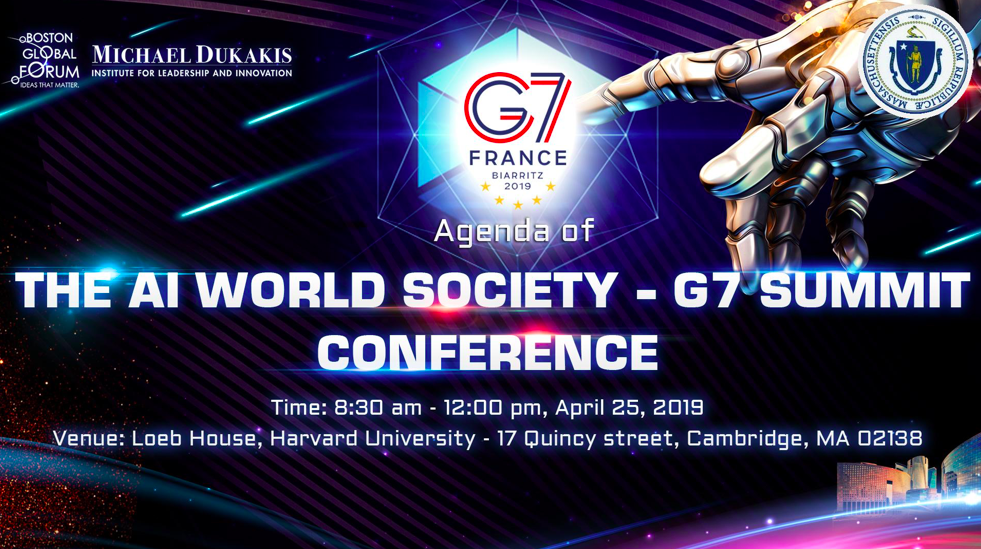
by BGF | Jun 7, 2019 | AI World Society Summit
Theme: AI World Society to Examine the Role of Artificial Intelligence in Government
Time: 8:30am – 12:00pm, April 25, 2019
Venue: Loeb House, Hazard University, 17 Quincy street, Cambridge, MA 02138
The forthcoming AI World Society – G7 Summit Initiative will focus on
the AI-Government Model for democracy in the age of Artificial Intelligence.
This is a new and evolutionary political development.
AI-Standards and Government Concepts
- Time: 8:30 am – 12:00 pm, April 25, 2019
- Venue: Loeb House, Harvard University, 17 Quincy Street, Cambridge, Massachusetts 02138
AGENDA of AIWS-G7 Summit Conference
- Governor Michael Dukakis: Opening Remarks
- Arnaud Mentré, Consul General of France in Boston: The French Perspective on Artificial Intelligence and the G7 Summit
- Professor Thomas Patterson: AI World Society – G7 Summit Initiative
- Governor Michael Dukakis: Presents the AI World Society – G7 Summit Initiative to the Government of France
- Vint Cerf, the Father of the Internet: Honored as World Leader in AI World Society (AIWS)
- Vint Cerf: Artificial Intelligence and the Future of the Internet
- Professor Matthias Scheutz: Concepts for AIWS Standards
- Paul Nemitz: Legal Concepts for AI – Layer 4 of AI World Society
- Conference Delegates: Open Discussion
- Governor Michael Dukakis: Closing Remarks
- Closing Remarks
- Governor Michael Dukakis

by BGF | Apr 29, 2019 | AI World Society Summit
At the AI World Society – G7 Summit Conference, Boston Global Forum honored one of the Father of Internet, Vint Cerf, as World Leader in AI World Society Award. Governor Michael Dukakis, Chairman of the BGF delivered remarks of honor.

the father of the Internet, the leader of Google on the Internet, Vine Cerf, gave a speech to receive the World Leader Award in Artificial Intelligence Society.
Below is Remarks of Honor by Governor Michael Dukakis, Chairman of the Boston Global Forum:
Each year at this conference we grant our World Leader in AI World Society award. I’m pleased to announce that this year’s recipient is Vinton Cerf.
Vint Cerf is recognized as a father of the Internet, sharing the title with co-inventor Bob Kahn. His contributions have been widely acknowledged with a long list of honorary degrees, including doctorates from Yale and Tsinghua University, and numerous awards, including the U.S. National Medal of Technology, the Turing Award, the Presidential Medal of Freedom, and the Marconi Prize. He was an inaugural inductee of the Internet Hall of Fame.
After his pioneering work in developing the Internet while at the U.S, Department of Defense Advanced Research Projects Agency, Mr. Cerf helped create the first commercial email system. Then, in the 1990s, along with Bob Kahn and others, he founded the Internet Society –ISOC – to provide leadership in creating Internet standards and policy. He subsequently helped found ICANN, which coordinates name and numerical spaces on the Internet, and would later serve as chairman of ICANN’s board. He serves on the advisory board of the Council on Cyber Security and is a past president of the Association for Computing Machinery,
Since 2005, Mr. Cerf has been with Google as a Vice President and its Chief Internet Evangelist, a position that has enabled him to address major issues in areas such as the environment, digital transformation, and Artificial Intelligence. AI presents both opportunity and challenge, holding out great promise while also posing substantial risk, and Mr. Cerf has been a leading voice in how AI can be used to advance society’s collective interests.
A distinguishing feature of Mr. Cerf’s long and remarkable career has been his effort to ensure that the Internet serves humanitarian values. He has been a tireless advocate of net neutrality and for making broadband technology more widely available, and has supported innovative approaches to global problems, including the digital divide and the gender gap.
The digital and internet revolution is transforming how we live, work, and connect with each other, and few individuals have made a larger and more positive contribution to that transformation than has Vint Cerf. We are honored to recognize him as this year’s recipient of the World Leader in AI World Society award.
On receiving the World Leader Award in Artificial Intelligence Society, Mr. Cerf gave a speech at the AI World Society – G7 Summit Conference. Watch the video here: Vint Cerf: One of the Fathers of the Internet received World Leader in AIWS Award.
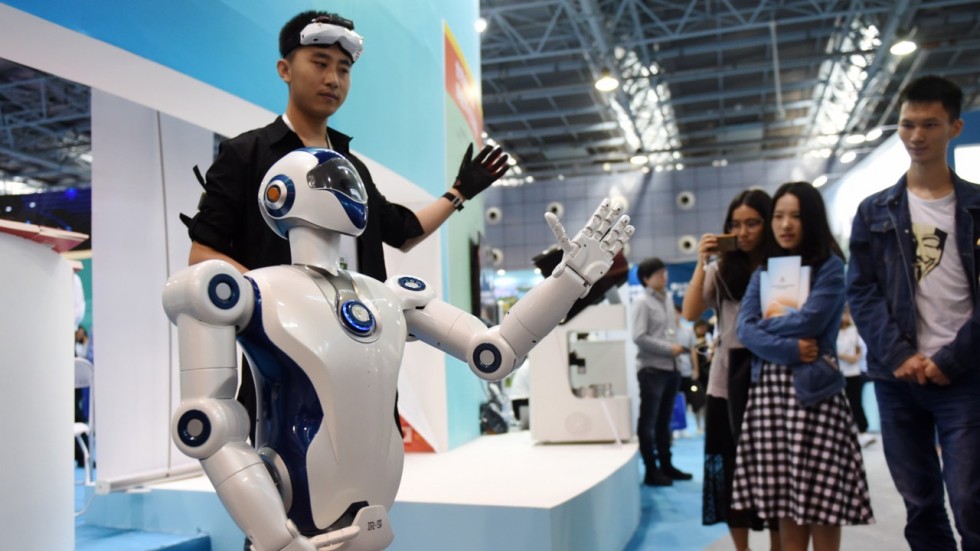
by BGF | Apr 15, 2019 | 7-Layer Model of AI World Society, Uncategorized
On April 8, 2019, the High-Level Expert Group on AI presented their ethics guidelines for trustworthy artificial intelligence.
According to the guidelines, trustworthy AI should be:
(1) lawful – respecting all applicable laws and regulations
(2) ethical – respecting ethical principles and values
(3) robust – both from a technical perspective while taking into account its social environment
The guidelines put forward a set of 7 key requirements that AI systems should meet in order to be deemed trustworthy. A specific assessment list aims to help verify the application of each of the key requirements:
- Human agency and oversight: AI systems should empower human beings, allowing them to make informed decisions and fostering their fundamental rights. At the same time, proper oversight mechanisms need to be ensured, which can be achieved through human-in-the-loop, human-on-the-loop, and human-in-command approaches
- Technical Robustness and safety: AI systems need to be resilient and secure. They need to be safe, ensuring a fall back plan in case something goes wrong, as well as being accurate, reliable and reproducible. That is the only way to ensure that also unintentional harm can be minimized and prevented.
- Privacy and data governance: besides ensuring full respect for privacy and date protection, adequate data governance mechanisms must also be ensured, taking into account the quality and integrity of the data, and ensuring legitimised access to data.
- Transparency: the data, system and AI business models should be transparent. Traceability mechanisms can help achieving this. Moreover, AI systems and their decisions should be explained in a manner adapted to the stakeholder concerned. Humans need to be aware that they are interacting with an AI system, and must be informed of the system’s capabilities and limitations.
- Diversity, non-discrimination and fairness: Unfair bias must be avoided, as it could could have multiple negative implications, from the marginalization of vulnerable groups, to the exacerbation of prejudice and discrimination. Fostering diversity, AI systems should be accessible to all, regardless of any disability, and involve relevant stakeholders throughout their entire life circle.
- Societal and environmental well-being: AI systems should benefit all human beings, including future generations. It must hence be ensured that they are sustainable and environmentally friendly. Moreover, they should take into account the environment, including other living beings, and their social and societal impact should be carefully considered.
- Accountability: Mechanisms should be put in place to ensure responsibility and accountability for AI systems and their outcomes. Auditability, which enables the assessment of algorithms, data and design processes plays a key role therein, especially in critical applications. Moreover, adequate an accessible redress should be ensured.
According to Michael Dukakis Institute for Leadership and Innovation (MDI), standard of transparency is also one of four main components under AIWS Ethics and Practice Index. It substantially promotes and applies openness and transparency in the use and development of AI, including data sets, algorithms, intended impacts, goals, and purposes.
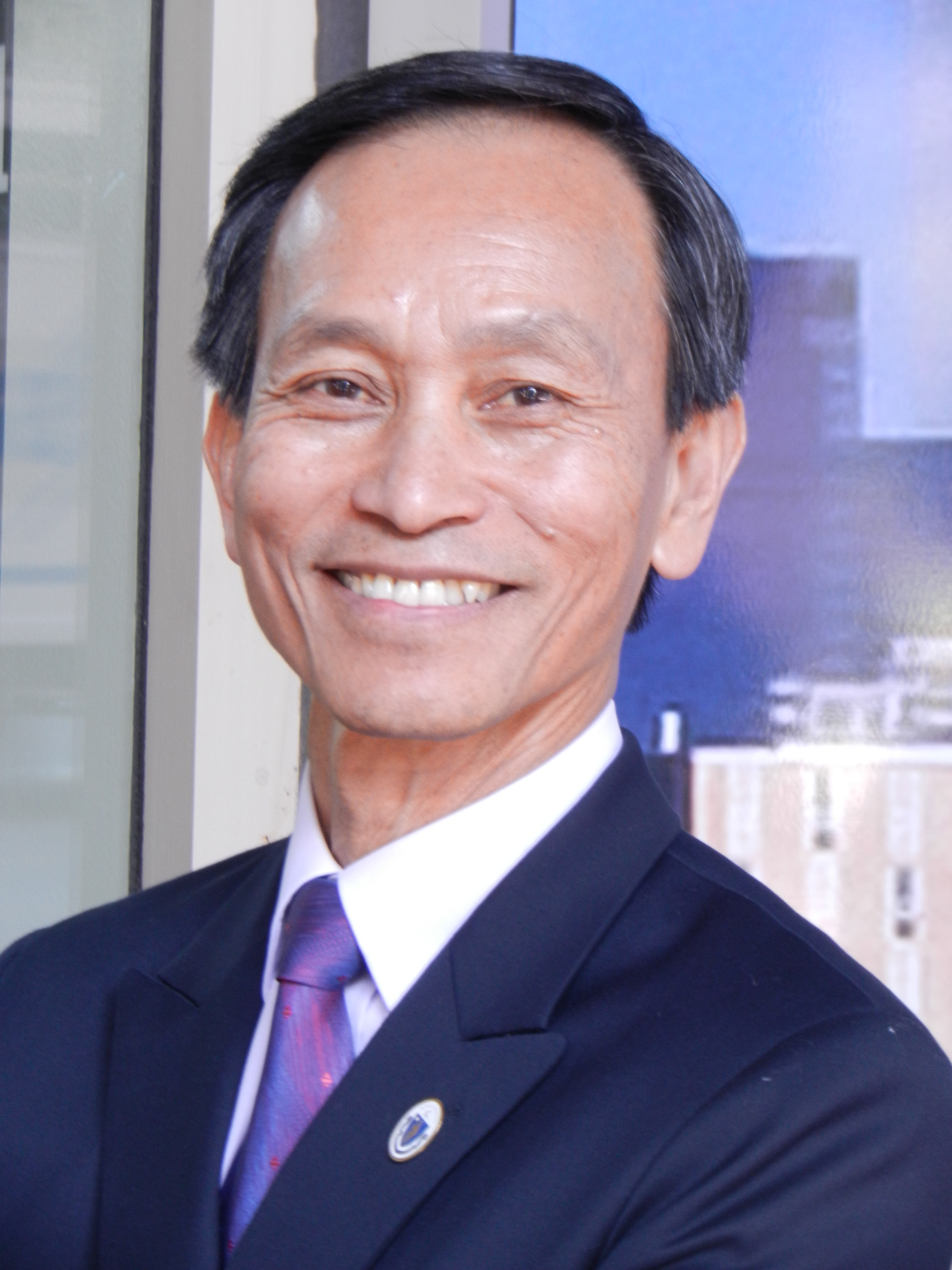
by BGF | Apr 24, 2019 | Uncategorized

the Assistant Secretary of Business Development and International Trade, Government of Massachusetts
Nam joined the Baker/Polito Administration as the Assistant Secretary of Business Development which
oversees the Mass. Office of Business Development, Mass. Office of Travel and Tourism, Mass. Film
Office and Mass. Office of International Trade & Investment. Previously Nam was the CEO of
Vietnamese American Initiative for Development (VietAID).
Nam has been a commercial banker for more than 20 years in both lending and credit for premier
community banks and large commercial banks. From 1994 to 2000 Nam served as Commissioner of
Massachusetts Office for Refugees and Immigrants, and Deputy Director of the Massachusetts Office of
International Trade & Investment.
Nam earned his BS degree in Business Administration from the University of Minnesota’s Carlson School
of Management, and MPA in Political Economy from Harvard’s Kennedy School of Government.

by BGF | Apr 29, 2019 | News

Representatives of the French Government, French Consul General at Boston Arnaud Mentre received the Artificial Intelligence Society Initiative for the 2019 G7 Summit.
The AIWS – G7 Summit Initiative was announced on April 25, 2019 at AIWS-G7 Summit Conference at Loeb House, Harvard University.
The Initiative is The Next Generation Democracy – AI World Society. The AIWS Model envisions a society where creativity, innovation, tolerance, democracy, the rule of law, and individual rights are recognized and promoted, where AI is used to assist and improve government decision-making, and where AI is a mean of giving citizens a larger voice in governing.
The AIWS-G7 Summit Initiative has three parts: AI-Government, AI-Citizen, and AI Government Index.
The co-authors are Governor Michael Dukakis, Chairman of the Boston Global Forum; Mr. Nguyen Anh Tuan, CEO of Boston Global Forum; David Bray, Executive Director of The People-Centered Internet coalition; Professor Nazli Choucri, MIT; Professor Thomas Creely, Naval War College; Mr. Paul Nemitz, Principal Advisor, Directorate General for Justice and Consumers, the European Commission; Professor Thomas Patterson, Harvard; David Silbersweig, Harvard; President Vaira Vike-Freiberga, President of World Leadership Alliance-Club de Madrid; and Mr.Kazuo Yano, Chief Engineering of Hitachi.
Consul General of France Arnaud Mentre received the AIWS-G7 Summit Initiative at the Conference.

by BGF | Apr 29, 2019 | Event Updates
In the morning April 25, 2019, the Boston Global Forum (BGF) organized
AIWS-G7 Summit Conference at Loeb House, Harvard University.
The conference is sponsored by Government of Commonwealth of Massachusetts and supported by France Government.
Mr. Arnaud Mentre, Consul General of France in Boston, Representative of French Government, received the AIwS-G7Summit Initiative of BGF. He presented a keynote speech at the conference with topic “The French Perspective on Artificial Intelligence and the G7 Summit”.
On behalf of co-authors, Professor Thomas Patterson introduce AIWS-G7 Summit Initiative.
At the prestigious event, the Boston Global Forum honored one of Fathers of Internet, Vint Cerf as World Leader in AI World Society.

Mr. Paul Nemitz presented the principles of creating Artificial Intelligence Law, layer 4 of the 7-layer Artificial Intelligence Society model.
Mr. Paul Nemitz, presented Legal Concepts for AI – Layer 4 of AI World Society he introduces concepts of AI International Law. This is pioneer of AI Legal.
His precision gets very provocative discussion from professors of Harvard University, MIT include Professor Neil Gershenfeld, MIT etc.
Mr. Nam Pham, Assistant Secretary of Business Development and International Trade of Government of Massachusetts gave speech, committed Government of MA supports AIWS-Summit.
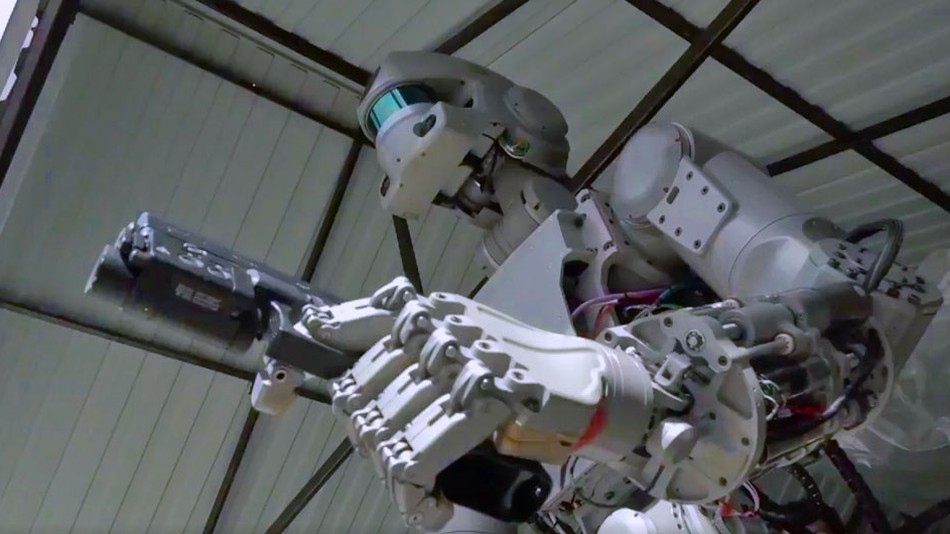
by BGF | Apr 29, 2019 | News
Two years ago, arms control advocates had reason for hope when scores of countries metat the United Nations in Geneva to discuss the future of lethal autonomous weapons systems, or LAWS. The main goal was to limit or regulate military AI.At the time, Russia was strongly against these efforts, arguing that “it is hardly acceptable for the work on LAWS to restrict the freedom to enjoy the benefits of autonomous technologies being the future of humankind” due to “the difficulty of making a clear distinction between civilian and military developments of autonomous systems based on the same technologies is still an essential obstacle in the discussion on LAWS.” (source: defenseone.com)

Fast forward to today and Russia is seemingly changingits stand on this issue. At least, that is according to a signal sent by Russian Security Council Secretary Nikolai Patrushev, who saidthis week, “we believe that it is necessary to activate the powers of the global community, chiefly at the UN venue, as quickly as possible to develop a comprehensive regulatory framework that would prevent the use of the specified [new] technologies for undermining national and international security.”
This reversal of course by Russia is interesting considering its strengthened support for AI use in military applications during the past two years. President Vladimir Putin even said that AI is necessary in weapons production.
Russian officials now seemed interested in standards for AI. What caused Russia to change its stand? Regardless of the answer, the AI World Society welcomes Russia’s softened approach to this important matter. We hope that our Comprehensive Report and Guidelineson AI Ethics could be helpful.

by BGF | Apr 29, 2019 | News
In recent years, researchers and journalists have highlighted artificial intelligence sometimes stumbling when it comes to minorities and women. Facial recognition technology, for example, is more likely to become confused when scanning dark-skinned women than light-skinned men.

Last week, AI Now, a research group at New York University, released a study about A.I.’s diversity crisis. The report said that a lack of diversity among the people who create artificial intelligence and in the data they use to train it has created huge shortcomings in the technology.
For example, 80% of university professors who specialize in A.I. are men, the report said. Meanwhile, at leading A.I. companies like Facebook, women comprise only 15% of the A.I. research staff while at Google, women account for only 10%.
Furthermore, Timnit Gebru, who is an A.I. researcher at Google, is cited in the report as saying “she was one of six black people—out of 8,500 attendees” at a leading A.I. conference in 2016.
The report’s authors believe that the problem of A.I. performing poorly with certain groups could be fixed if a more diverse set of eyeballs was involved in the technology’s development. And while tech companies say they are aware of the problem, they haven’t done much to fix it, the report said.
One possible solution is for companies to examine and repair any workplace cultures that are off-putting to women and people of color. Most women, for instance, wouldn’t want to work at a company if they knew that it tolerates bigotry and unequal wages between the genders.
Another solution for improving workplace diversity is for companies to be more transparent, which signals to prospective employees their seriousness about the issue. This could include publishing employee compensation figures broken down by race and gender, releasing harassment and discrimination reports that reveal the number of such incidents, and ensuring that executive salaries “are tied to increases in hiring and retention of under-represented groups.”
It’s these types of public steps that could lead to more people of diverse backgrounds working on A.I., the report said, ensuring that the next big A.I. breakthrough benefits everyone.
In a related note, Joy Buolamwini, the founder of the Algorithmic Justice League and a graduate researcher at the MIT Media Lab who did not work on the report discussed here, has done remarkable work chronicling A.I. bias problems in facial recognition systems. That work earned her a spot on Fortune’s World’s Greatest Leaders list, published last week along side a number of other techies.














